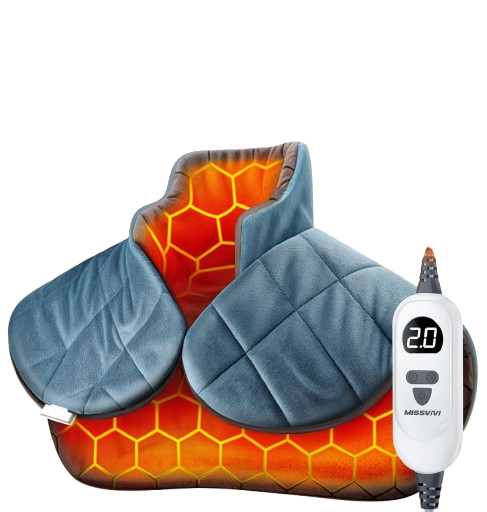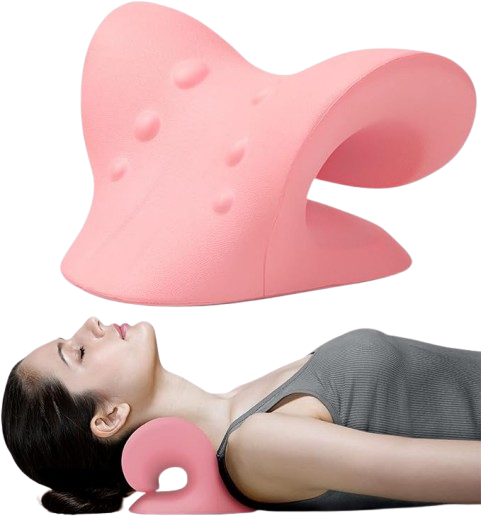As women navigate the often tumultuous waters of menopause, they encounter a myriad of symptoms. While hot flashes and mood swings typically steal the spotlight, there’s another less-discussed symptom that can rear its head: frozen shoulder. If you’re navigating the ups and downs of menopause and find yourself battling unexpected shoulder pain, you’re not alone. Menopause and frozen shoulder might just be more connected than you think.
Frozen shoulder might sound like something you’d get from an overly aggressive air conditioner, but for many women experiencing menopause, it’s a real and painful phenomenon. Known medically as adhesive capsulitis, frozen shoulder causes stiffness, pain, and a limited range of motion in the shoulder joint. And here’s the kicker: it can last months or even years. But could there be a link between menopause and frozen shoulder? Let’s dig in.
So what IS frozen shoulder?
To understand frozen shoulder, imagine your shoulder joint surrounded by a capsule of connective tissue. Normally, this capsule is flexible and allows your shoulder to move freely. But when you develop frozen shoulder, the capsule thickens and tightens, restricting movement and causing pain. This condition can develop gradually and may result in significant discomfort and restricted movement. Imagine the frustration of your shoulder feeling like a rusty hinge that refuses to budge.
Frozen Shoulder Symptoms: Menopause’s Little Surprise Gift
Frozen shoulder doesn’t appear overnight. Instead, it unfolds in three distinct stages:
- Freezing Stage: Pain develops and worsens, limiting your shoulder’s movement. This can last 6-9 months.
- Frozen Stage: Pain may ease, but stiffness becomes the main issue, making daily activities challenging. This stage can drag on for 4-12 months.
- Thawing Stage: Gradually, your shoulder’s range of motion improves, though full recovery can take years.
These symptoms make even simple tasks—like putting on a bra or reaching for a mug—feel like Olympic feats. Sound familiar? You might be experiencing frozen shoulder symptoms related to menopause.
So, where does menopause fit into this?
The Link between Menopause and Frozen Shoulder: When Hormones and Joints Collide
The hormonal rollercoaster of menopause can do more than trigger hot flashes and mood swings. Estrogen, which helps keep joints lubricated and muscles supple, drops significantly during menopause. This decline can lead to inflammation and stiffness—a perfect storm for developing frozen shoulder.
Interestingly, menopause and frozen shoulder are often linked because frozen shoulder is more common in women aged 40 to 60, which overlaps with the typical menopausal years. Coincidence? We think not. If you’re feeling like your body’s got a vendetta, know that you’re not alone—and relief is possible.
Let’s talk about what you can do.
Practical Relief for Menopause and Frozen Shoulder
While frozen shoulder can be frustratingly stubborn, there are steps you can take to ease the discomfort. Here’s what works:
1. Stretch and Strengthen
Gentle stretching exercises can help maintain range of motion and reduce stiffness. Try pendulum swings or doorway stretches—just don’t push too hard.
2. Heat and Cold Therapy
Applying a heating pad or ice pack can alleviate pain and reduce inflammation. Alternate between heat and cold to see what works best for you.
3. Over-the-Counter Pain Relief
Nonsteroidal anti-inflammatory drugs (NSAIDs) like ibuprofen can reduce pain and swelling. Always consult your doctor first.
4. Professional Help
Physical therapy can be a game-changer. Therapists can guide you through exercises tailored to your condition.
5. Home Gadgets That Help
If you’re a fan of practical solutions, these four products can complement your treatment plan:

InvoSpa | Shiatsu Neck & Shoulder Massager
Amazon rating
Pamper yourself with a deep tissue kneading pillow that combines heat therapy and massage, helping to loosen tight muscles and alleviate stress

Upright GO 2 | Premium Posture Corrector
Amazon rating
Incorporating a posture corrector into your routine can be a game-changer by gently pulling your shoulders back and promoting proper alignment
Looking for more innovative solutions to support menopause? Click here to discover how you can make this journey smoother and more comfortable.
Preventative Tips for Menopause and Frozen Shoulder: Keep Calm and Keep Moving
While some factors—like hormonal changes—are beyond your control, you can take steps to lower your risk:
Manage Stress: High stress levels can exacerbate inflammation, so incorporate relaxation techniques into your routine.
Stay Active: Regular movement keeps your joints and muscles in good shape.
Prioritize Posture: Poor posture can strain your shoulders and neck, so stand tall.
When to See A Doctor
If shoulder pain persists or worsens despite your best efforts, it’s time to consult a doctor. In some cases, steroid injections or even surgery may be necessary to resolve the issue. While this isn’t the first course of action, it’s good to know that solutions are available.
Embrace the Journey
Frozen shoulder is a little-known yet significant symptom of menopause that can impact daily life, but armed with the right knowledge and tools, you can tackle this discomfort head-on. Remember, your shoulder isn’t frozen forever, and whether it’s through physical therapy, topical treatments, or mindfulness practices, you have the power to manage this condition. So, next time you find yourself reaching for that top shelf, don’t let frozen shoulder hold you back. With the right approach you can conquer this symptom and embrace the new chapter of life with new confidence!



